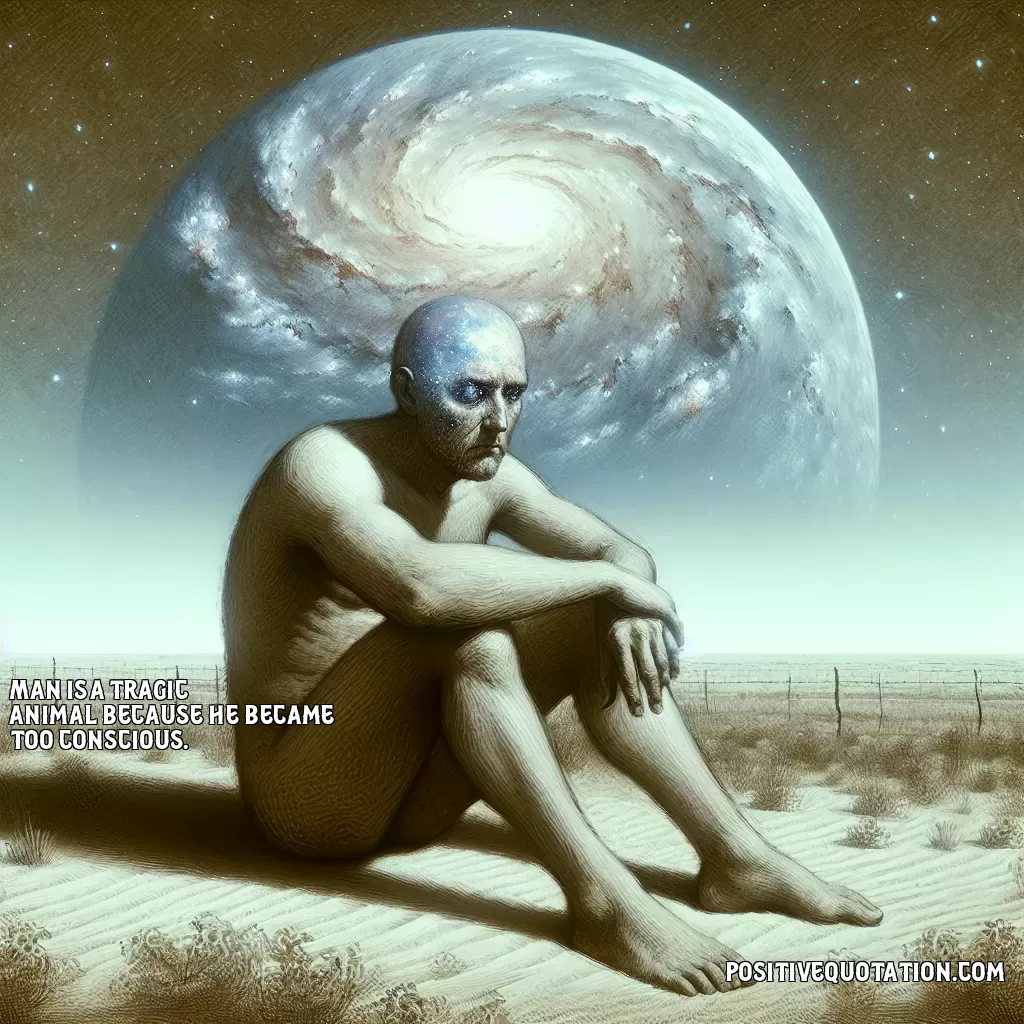
Man is a tragic animal because he became too conscious.
Author: Arthur Schopenhauer
👁️ 14 views
This quote suggests that humanity's profound tragedy stems from our heightened consciousness and self-awareness. Unlike other animals, humans possess the ability to reflect deeply on their existence, their place in the universe, and their inevitable mortality. This level of consciousness allows us to create art, ponder complex philosophical questions, and develop technologically advanced societies. However, it also brings with it an acute awareness of life's existential dilemmas and the transience of our existence. Our consciousness enables us to foresee our eventual demise, leading to existential angst and a search for meaning in a seemingly indifferent universe. The awareness of death, coupled with the understanding of our own limitations and the temporary nature of our achievements, can create a sense of tragedy. We strive to find meaning and purpose in our lives, yet we are often confronted with uncertainty and an overarching sense of impermanence. Moreover, heightened consciousness makes us acutely aware of suffering—not just our own, but that of others. This empathetic realization further deepens the human condition as a blend of joy and suffering, accomplishment and despair. In essence, our advanced cognitive abilities enable us to contemplate the depths of human experience, both its beauty and its sorrow, which is a double-edged sword. Thus, our tragedy lies in our extraordinary consciousness that both illuminates our existence and emphasizes its limits, compelling us to navigate life's complexities with both hope and trepidation.
Quote By: Arthur Schopenhauer
Arthur Schopenhauer (1788-1860) was a German philosopher known for his pessimistic philosophy and profound influence on existentialism and psychology. He emphasized the role of the will as the fundamental driving force of human life and argued that suffering is an inherent part of existence. His major work, "The World as Will and Representation," explores the nature of reality and offers a critique of optimism, notably challenging the philosophies of Hegel and Kant.
Bio added on: 2025-02-15 19:47:51